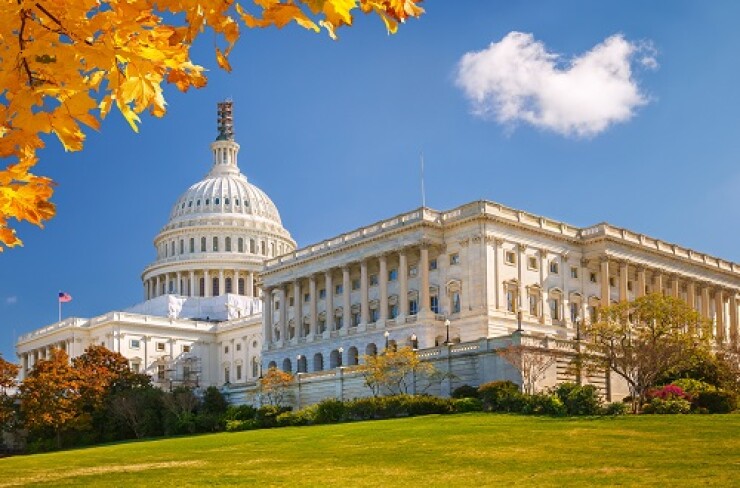Federal agencies have increasingly sought to solve current problems using expansive interpretations of old statutes. That's counterproductive, and it's Congress's fault.
As any third-grade student will tell you, the government has three branches: executive, legislative and judicial. And they will also tell you earnestly that Congress writes the laws, the executive branch enforces them and the judicial branch determines whether those laws and their enforcement are constitutional.
By the time those students enroll in their AP government class, they may be able to tell you that actually it's a little more complicated — those branches don't always act in good faith, and nongovernmental organizations, trade groups and journalists all play a role in whether a bill becomes law.

And when those students graduate and major in political science and get a job as a legislative aide in a lawmaker's office — or, say, becomes a reporter covering policy for a decade or so — they will tell you that Congress isn't even where policy is made at all. Presidential administrations will generally use whatever powers have accrued to them from past Congresses to address as many of their priorities as they can — and when a new administration arrives, it undoes as many of the prior administration's actions as it can as soon as it can and then uses the same authority to go in the opposite direction.
It's important to keep in mind just how recent a phenomenon this really is. Back in 1948, President Harry Truman was facing daunting reelection prospects and was expected to lose badly to Republican nominee Thomas Dewey. Truman used his acceptance speech for the Democratic nomination in early July to call a special session — known as the "
Even through the early 2000s, Congress could be reasonably expected to address the important matters of the day, though the division of labor between the legislative and executive branches often boiled down to Congress instructing and empowering federal agencies to solve a problem and the agencies being left to figure out how. That dynamic had the effect of leaving important policy choices to agencies — a delegation of authority that the Supreme Court has historically
That, of course, was a different Supreme Court from the one sitting today. The Consumer Financial Protection Bureau — whose director, Rohit Chopra, has adopted an
At the same time, the Federal Reserve's unquestioned authority to grant master accounts to bank applicants is
But rather than blaming the agencies for getting over their skis, I blame Congress for being unable to give them workable, solid power to solve agreed-upon policy objectives. Whether the CFPB's method of defining unfair, deceptive and abusive acts and practices conforms with the Administrative Procedure Act is a very different question from whether such acts or practices should be allowed. Whether the Fed's master account process is correct is a different question from whether the Fed has a public interest in ensuring that membership in its organization is limited to financial companies that will keep that system safe.
Whether the outcomes of the CFPB or master account lawsuits are good or bad for the agencies or their authority is important, but it's beside the point; the agencies are pursuing the administration's policy objectives because Congress cannot be relied upon to develop consensus policy objectives that everyone can live with.
There are some glimmers of hope for the upcoming Congress, but not many. House Financial Services Committee Chair Maxine Waters, D-Calif., and ranking member Patrick McHenry, R-N.C., have been
I'm not the first person to complain about a do-nothing Congress, and I don't expect to be the last. But when Congress does nothing, administrations skate on ever-thinning statutory ice. And when the Supreme Court decides to break the ice, we all fall in.






